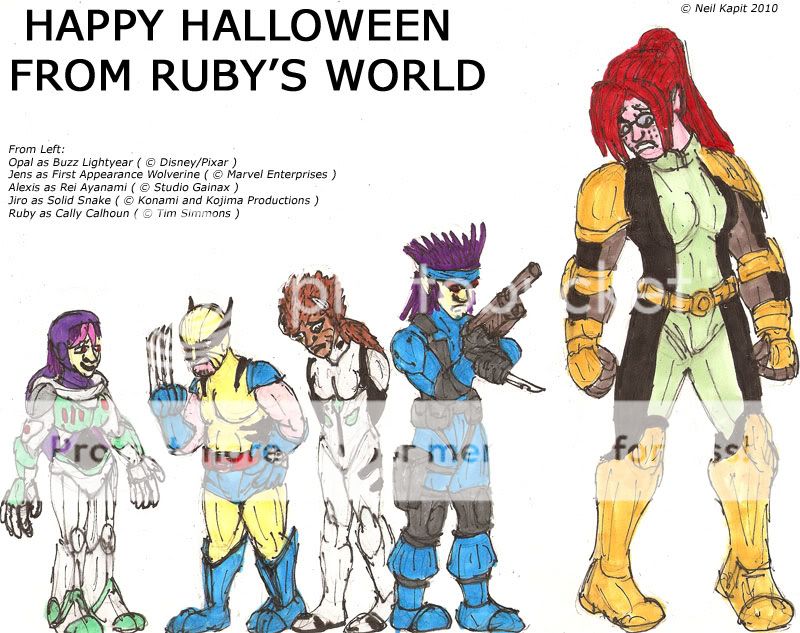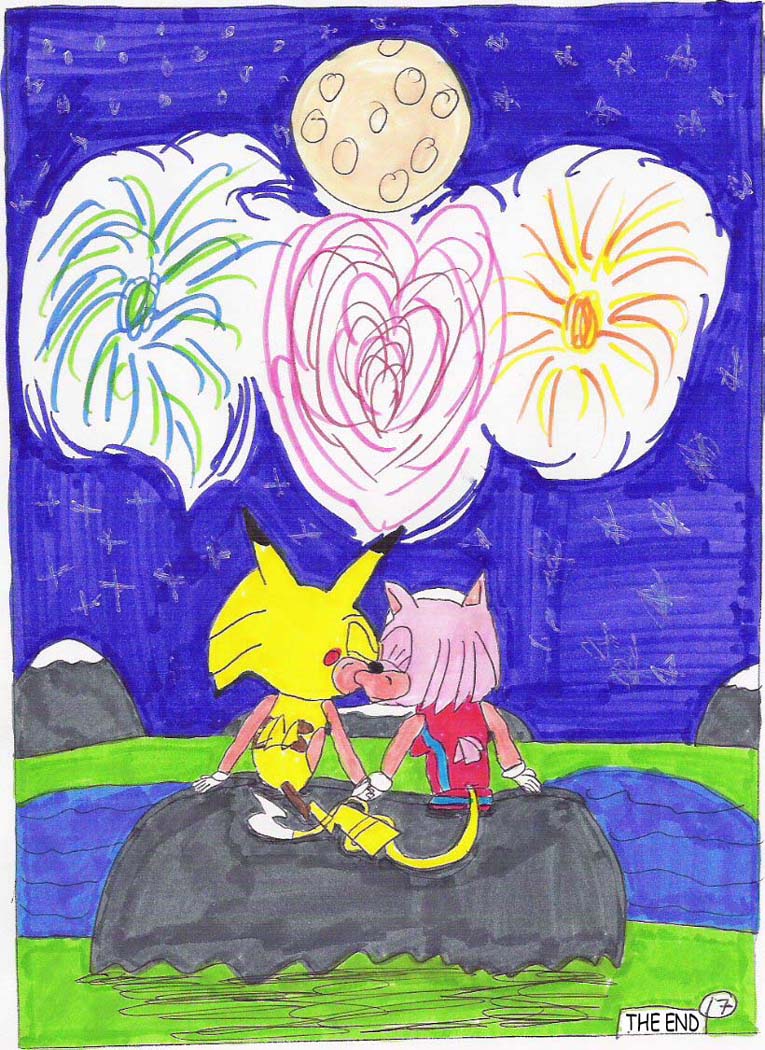
I wouldn't feel right doing a list of negatives without a list of positives, so even though my interest in following monthly comics has diminished, I still read plenty of good stuff this year. Named for the world's greatest cat, here are the awards for the best of the best, the comics that had me genuinely excited.
BEST NEW SUPERHERO SERIES: Avengers Academy by Christos Gage and Mike McKone. Yeah, it sounded like just another teen team book...until the end of the first issue, when it was revealed that all the teens are at-risk superhumans with troubled pasts, and the adults are only training them to keep them from becoming villains. Then it was clear that Avengers Academy would be an excellent new book with a complex cast of characters. The fact that they're younger doesn't mean they're treated condescendingly by the creative team-- in fact, these kids are just as competent as the adults (though when the adults are all failed Avengers, it might not be saying too much).
BEST ONGOING SUPERHERO SERIES: Invincible Iron Man by Matt Fraction and Salvador Larroca. Last year's World's Most Wanted story was, and still is, my all-time favorite Iron Man saga. This year didn't quite measure up to that, as a lot of it was set-up needed to rebuild everything Tony had lost. But even when the story was going too slow, I didn't find it less interesting. Last year had Tony going on what appeared to be his final mission, sacrificing his entire legacy down to the last brain cell so it would stay out of Norman's hands. This year had Tony wake up with an incomplete memory, learning about the horrible mistakes he'd made without having any attachment to having made them, and trying to redefine who he is. Making a new company out of a small group of trusted partners, ditching the military entirely to just focus on his clean energy, and using Pepper's Rescue identity as a symbol for the ideal future of Iron Man were moves that indicated that Tony was A.) determined to make the world a better place, and B.) desperate to move forward to the point of not thinking the implications of his moves through.
In the process, we got a lot of great stuff, including the Iron Man Requiem back-up strip (that, in a move of metatextual tragicomedy, has the brain-damaged Tony hallucinate that his origin was AGAIN in Vietnam), a rather creepy look into Tony's sub-conscious, a brilliant reinventing of the Mandarin as egotistical despot a la Kim Jong Il or Christian Weston Chandler, an excellent-looking new armor, and the villains forming into a family act. Like the Aristocrats, except...well, given how it's the granddaughter of Justin Hammer/daughter of the Mandarin and the son of Obadiah Stane, it's pretty much the Aristocrats.
MOST SATISFYING SUPERHERO MOMENT: Siege #3 by Brian Michael Bendis and Olivier Coipel. After letting the world fall apart in the midst of their petty in-fighting, the Avengers get their shit together and take back their country. Captain America leads the charge against Norman Osborn, Iron Man shuts down the Iron Patriot tech with a condescending push of a button, and Spider-Man punches the bastard in the face. It wasn't brilliant, but damn did it feel good to see.
BEST SERIES CONCLUSION: Scott Pilgrim Vol. 6 by Bryan Lee O'Malley. This series has become popular not just for its video game references mixed with twentysomething angst, but the fact that it's actually quite well-done. After having broken up with Ramona in the previous volume, Scott regresses to his irresponsible man-child ways, only to find that it's no longer even remotely endearing. Embarassed, he has to pull himself together and fight Ramona's final evil Ex, Gideon Graves. But it's not Scott who gets the spotlight, but Ramona, who finally realizes that she can move past her baggage, and joins in the magically realistic fight. The ending doesn't go directly for happily ever after, but for the idea that Scott and Ramona now have the chance to movee on, and it doesn't treat Ramona as a prize to be won or lost, but a capable agent in the story.
Oh, and Gideon is finished off with a move from Chrono Trigger. Can't forget that.
BEST WEBCOMIC: The City of Reality by Ian Samson This series about a cartoony, hyper-idealistic city representing an isolationist paradise in a really horrible cosmos is one of my favorite webcomics ever. Unfortunately it went on hiatus this year, but it had some utterly great stories, most particularly the utter collapse of Reality's attempt to open its borders. This series made optimism cool, and hopefully Ian Samson will get back to it sooner rather than later. But don't take my word for it.... you can see the whole site Here.
BEST TEAR JERKER: The Boys #47, by Garth Ennis and Darick Robertson. The gratuitous violence and debauchery in this series obscures the brilliant storytelling and character depth. For years we've seen Wee Hughie, the only member of the Boys who is actually a nice person, dating Annie January, who (unbeknownst to him) is a member of the decadent military-industrial super-team known as the Seven. When he finds out not only this fact, but sees footage of her giving a group blow-job to get on the team. Given how a member of the Seven carelessly got his last girlfriend killed, Hughie is furious with Annie and throws ever horrible insult he can make at her. Annie, who has been feeling horrible and traumatized about what she had done, doesn't defend herself and begs for forgiveness. Hughie knows she's right, but leaves her anyway. It was an extremely tragic moment for the characters whose relationship was the heart of the series, and it was done perfectly.




















